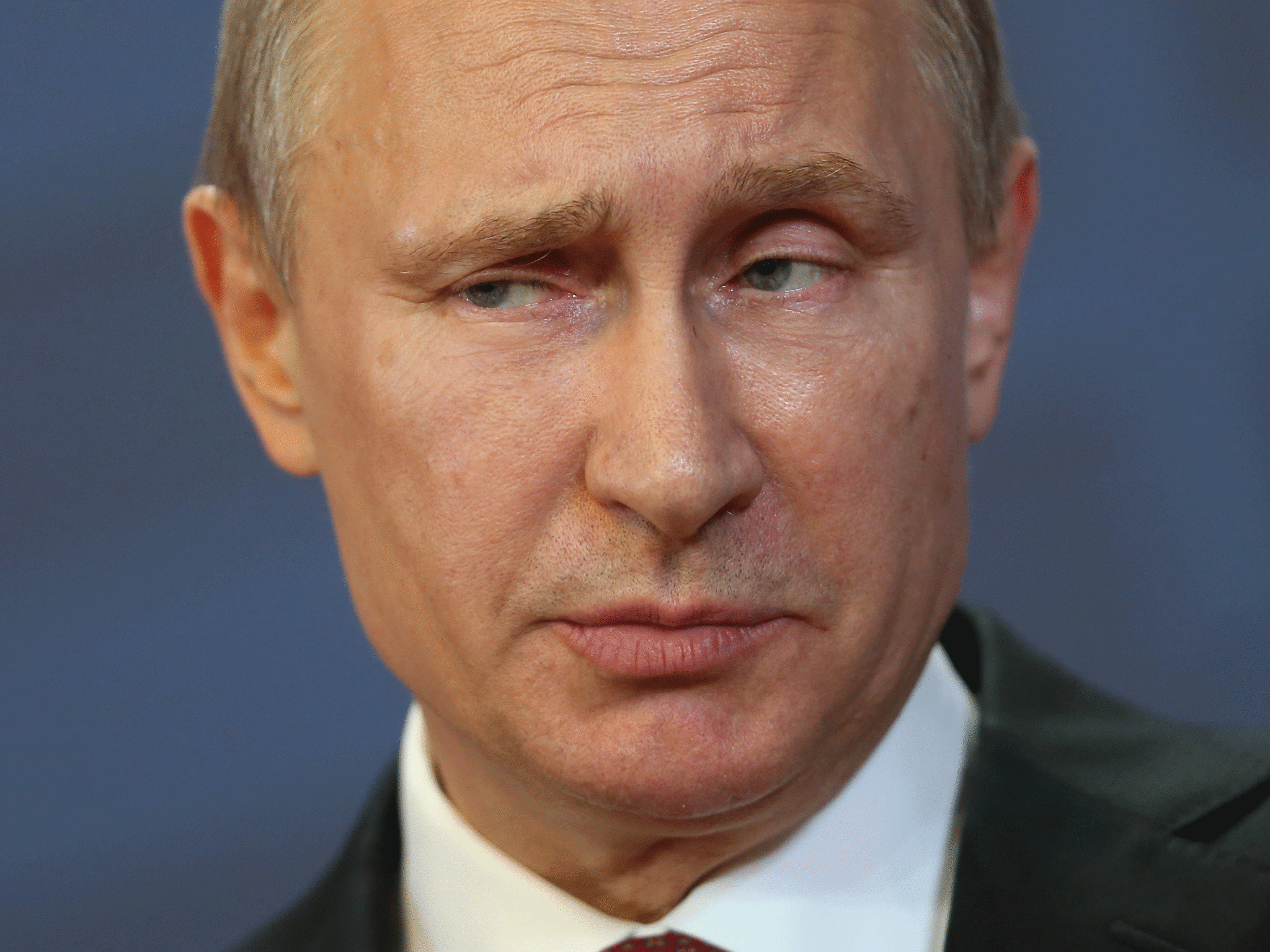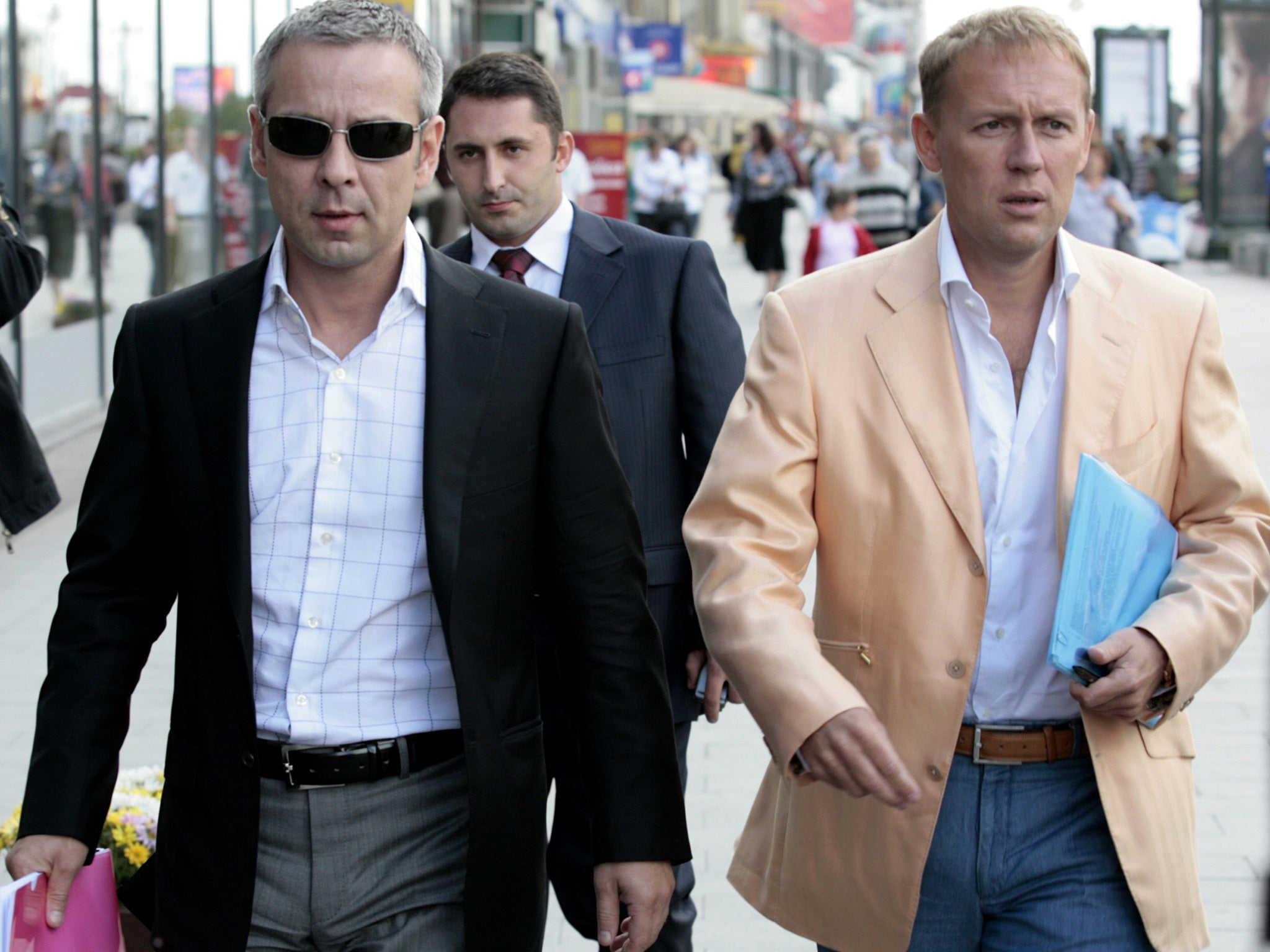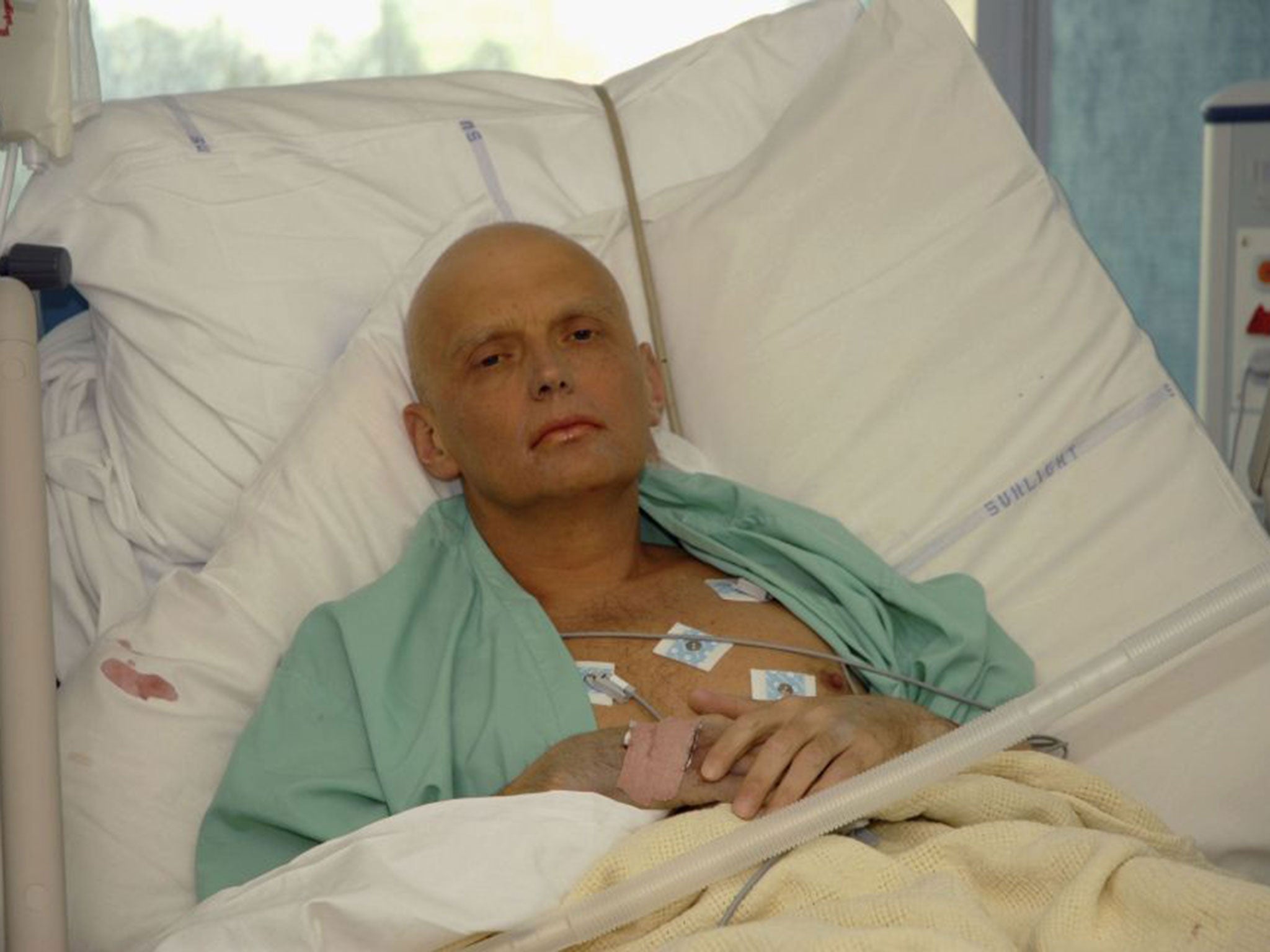Litvinenko inquiry: 'Morally deranged' Vladimir Putin responsible for assassination, hearing told
The prosecutor called Mr Putin a "tinpot despot"

The murder of Alexander Litvinenko would have been “impossible” without the approval of “morally deranged” President Vladimir Putin, the inquiry into the Russian spy's death has been told as six months of hearings came to an end.
Ben Emmerson QC, representing Mr Litvinenko's widow Marina and son Anatoly, told the inquiry that Mr Putin should be held responsible for the spy’s “assassination”.
Mr Litvinenko died aged 43, almost three weeks after drinking tea laced with polonium-210 in a London hotel in November 2006.
Police concluded that Mr Litvinenko, a former KGB agent, consumed the drink during a meeting with former agents Dmitri Kovtun and Andrei Lugovoi at a hotel in central London. The British authorities later decided to prosecute Mr Kovtun and Mr Lugovoi for murder.
The inquiry was presented with detailed forensic evidence connecting Mr Kovtun and Mr Lugovoi to Litvinenko’s murder, including the fact that polonium-210 was discovered in the pair's hotel rooms. It also heard how Mr Litvinenko's whistle-blowing about Mr Putin and his alleged links to organised crime had made him an “enemy of the state”.
Mr Emmerson QC described the pair as “henchmen” ordered to “liquidate” Mr Litvinenko by the Russian state with the backing of Mr Putin.
“If the Russian state is responsible, Vladimir Putin is responsible […] because he personally ordered the liquidation of an enemy who was bent on exposing him and his cronies.”

Labelling Putin a “tinpot despot,” Mr Emmerson QC said an award he recently gave Mr Lugovi for services to the Motherland was a “crass and clumsy” attempt to undermine the inquiry.
“[Mr Putin] is a morally deranged authoritarian who was at that very moment clinging desperately on to political power in the face of international sanctions and a rising chorus of international condemnation,” he said.
Some 62 witnesses have appeared at the inquiry which started in January, with the aim of establishing who was responsible for Mr Litvinenko’s death.

However, the Russian Embassy in London dismissed the public inquiry, claiming it did not trust it as it had been “politicised” and disregarded international law.
Speaking outside the Royal Courts of Justice after the inquiry ended, Mrs Litvinenko said: "It was very difficult but very important to do this.
"I'm very, very happy for what [the inquiry] will be able to bring to the open air for all people to be able to listen and see and discuss, even more I'm so glad that people are still interested after more than nine years."
Inquiry chairman Sir Robert Owen said he expected to return his conclusion by the end of the year.
Additional reporting by PA
